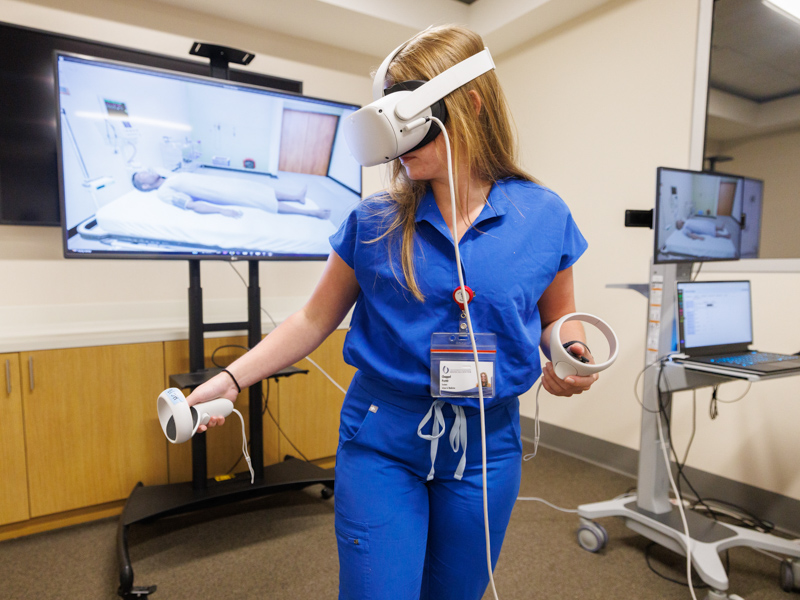Sleep apnea is a common sleep disorder characterized by pauses in breathing or shallow breathing during sleep. It can lead to various health issues, including fatigue, daytime drowsiness, and an increased risk of cardiovascular problems. As researchers continue to explore new treatments for sleep apnea, clinical trials are at the forefront of evaluating experimental drugs to alleviate its symptoms and improve the quality of life for affected individuals.
Understanding Clinical Trials
Clinical trials are carefully designed research studies that investigate new drugs, treatments, or medical devices to determine their safety and efficacy. They are essential for evaluating the potential benefits and risks associated with experimental interventions, and they play a crucial role in advancing medical knowledge and improving patient care. By participating in a clinical trial, individuals have the opportunity to contribute to the development of new therapies while gaining access to innovative treatment options.

Credit: www.linkedin.com
Importance of Clinical Trials for Sleep Apnea
For individuals with sleep apnea, finding effective treatment options is paramount. Clinical trials focusing on experimental drugs offer hope for addressing the symptoms and underlying causes of the condition. By evaluating the safety and effectiveness of new medications, these trials aim to provide individuals with access to potentially groundbreaking therapies that could significantly improve their sleep quality and overall well-being. It’s important to note that participation in clinical trials is entirely voluntary, and individuals always have the freedom to withdraw from the study at any time.
Typical Phases of Clinical Trials
Clinical trials for experimental drugs typically progress through several phases, each designed to address specific research questions and safety considerations:
| Phase | Description |
|---|---|
| Phase 1 | Focuses on the initial safety and dosing of the drug in a small group of participants. |
| Phase 2 | Evaluates the drug’s effectiveness and further assesses its safety in a larger group of participants. |
| Phase 3 | Examines the overall benefits and potential risks of the drug in a larger and more diverse participant population. |
Following successful completion of these phases, the experimental drug may undergo regulatory review for approval and eventual market availability.
Benefits and Risks of Participating in Sleep Apnea Clinical Trials
Participating in a clinical trial for sleep apnea can offer both potential benefits and risks. Some of the advantages of involvement in these trials include:
- Access to innovative treatment options
- Contributing to the advancement of medical research
- Close monitoring and medical care from experienced healthcare professionals
On the other hand, individuals should also consider potential risks, such as exposure to unknown side effects of experimental drugs and the possibility of receiving a placebo in certain trials. Prior to enrolling in a clinical trial, participants will receive detailed information about the study protocol, drug administration, and the potential risks and benefits associated with participation.

Credit: www.umc.edu
Current Developments in Sleep Apnea Clinical Trials
Researchers are continually exploring new avenues for addressing sleep apnea through clinical trial interventions. Whether testing novel pharmacological agents or innovative medical devices, these trials aim to improve the management and treatment outcomes for individuals with sleep apnea. By closely monitoring trial participants and evaluating the impact of experimental drugs on sleep patterns and breathing abnormalities, researchers strive to identify effective interventions that can ultimately enhance the overall quality of sleep for individuals with this condition.
Frequently Asked Questions Of Transforming Sleep: Clinical Trials Unveil Promising Experimental Drugs For Sleep Apnea
Can Clinical Trials Provide Effective Treatments For Sleep Apnea?
Yes, clinical trials play a crucial role in evaluating the effectiveness of experimental drugs and treatments for sleep apnea.
How Do Clinical Trials Assess The Safety Of Experimental Drugs For Sleep Apnea?
Clinical trials thoroughly monitor and evaluate the potential risks and side effects of experimental drugs to ensure patient safety.
What Are The Benefits Of Participating In A Clinical Trial For Sleep Apnea?
Participating in a clinical trial for sleep apnea provides individuals with access to cutting-edge treatments and contributes to advancing medical knowledge and patient care.
Are Clinical Trials For Sleep Apnea Open To Everyone?
Clinical trials have specific criteria for participation, including age, severity of sleep apnea, and overall health. Not everyone may qualify for certain trials.
Conclusion
In conclusion, clinical trials evaluating experimental drugs for sleep apnea play a critical role in advancing the understanding and treatment of this prevalent sleep disorder. By participating in these trials, individuals have the opportunity to contribute to the development of new therapies while potentially gaining access to innovative treatment options. As research continues to progress, the outcomes of these trials have the potential to significantly impact the lives of those affected by sleep apnea, offering hope for improved sleep quality and overall well-being.
Leave a Reply